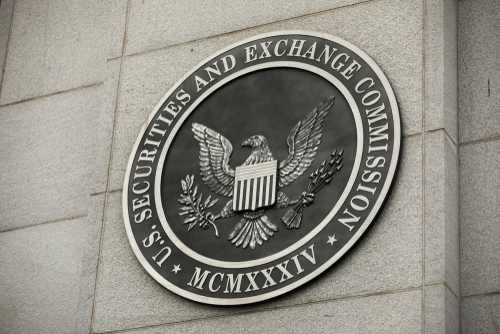The U.S. Securities and Exchange Commission’s Division of Examinations posted its examination priorities this week for 2023.

The examination priorities are published annually to provide investors with insights into its risk-based approach, focusing on areas that the SEC believes present potential risks to U.S. capital markets and investors.
“In a time of growing markets, evolving technologies, and new forms of risk, our Division of Examinations continues to protect investors,” SEC Chair Gary Gensler said. “In executing against the 2023 priorities, the Division will help ensure compliance with the federal securities laws and rules.”
Among the priorities for 2023, the SEC is looking at new investment adviser and investment company rules. Specifically, the division will focus on the new Marketing Rule, the Advisers Act Rule 206(4)-1). It will examine whether registered investment advisers (RIAs) have adopted and implemented written policies and procedures designed to prevent violations by the advisers of the new rule and whether RIAs have complied with the requirements. The division will also focus on new rules applicable to investment companies, including the Derivatives Rule and Fair Valuation Rule.
“Our priorities reflect the changing landscape and associated risks in the securities market and are the product of a risk-based approach to examination selection that balances our resources across a diverse registrant base. We will emphasize compliance with new SEC rules applicable to investment advisers and investment companies as well as continue our focus on emerging issues and rules aimed at protecting retail investors,” Division of Examinations’ Director Richard Best said. “Our examination program continues moving forward and remains committed to furthering investor protection through high-quality examinations and staying abreast of the latest industry trends and emerging risks to investors and the markets.”
Further, the SEC will examine the adviser’s fiduciary duty rules. It will assess risks, including a focus on compliance programs, fees and expenses, custody, the new Marketing Rule, conflicts of interest, and the use of alternative data. In addition, the SEC will review private fund advisers’ portfolio strategies, risk management, and investment recommendations and allocations, focusing on conflicts and disclosures around these areas. Also, it will focus on RIAs to private funds with specific risk characteristics.
Among other priorities, the division will address standards of conduct issues for broker-dealers and RIAs to ensure that retail investors are receiving recommendations and advice in their best interests. Specifically, they will focus on how registrants are satisfying their obligations under Regulation Best Interest and the Advisers Act fiduciary standard to act in the best interests of retail investors.
Additionally, the SEC will look at environmental, social, and governance, or ESG, related advisory services, and fund offerings to determine whether funds are operating in the manner set forth in their disclosures. It will also assess whether ESG products are appropriately labeled and if recommendations are made in the investors’ best interests.
Also, the division will review broker-dealers’, RIAs,’ and other registrants’ practices to prevent interruptions to mission-critical services and protect investor information, records, and assets. The reviews will include a focus on the cybersecurity issues associated with the use of third-party vendors.
Further, the division plans to conduct examinations of broker-dealers and RIAs that are using emerging financial technologies or new practices to service investor accounts. Examinations will focus on the offer, sale, recommendation of, or advice regarding trading in crypto or crypto-related assets.